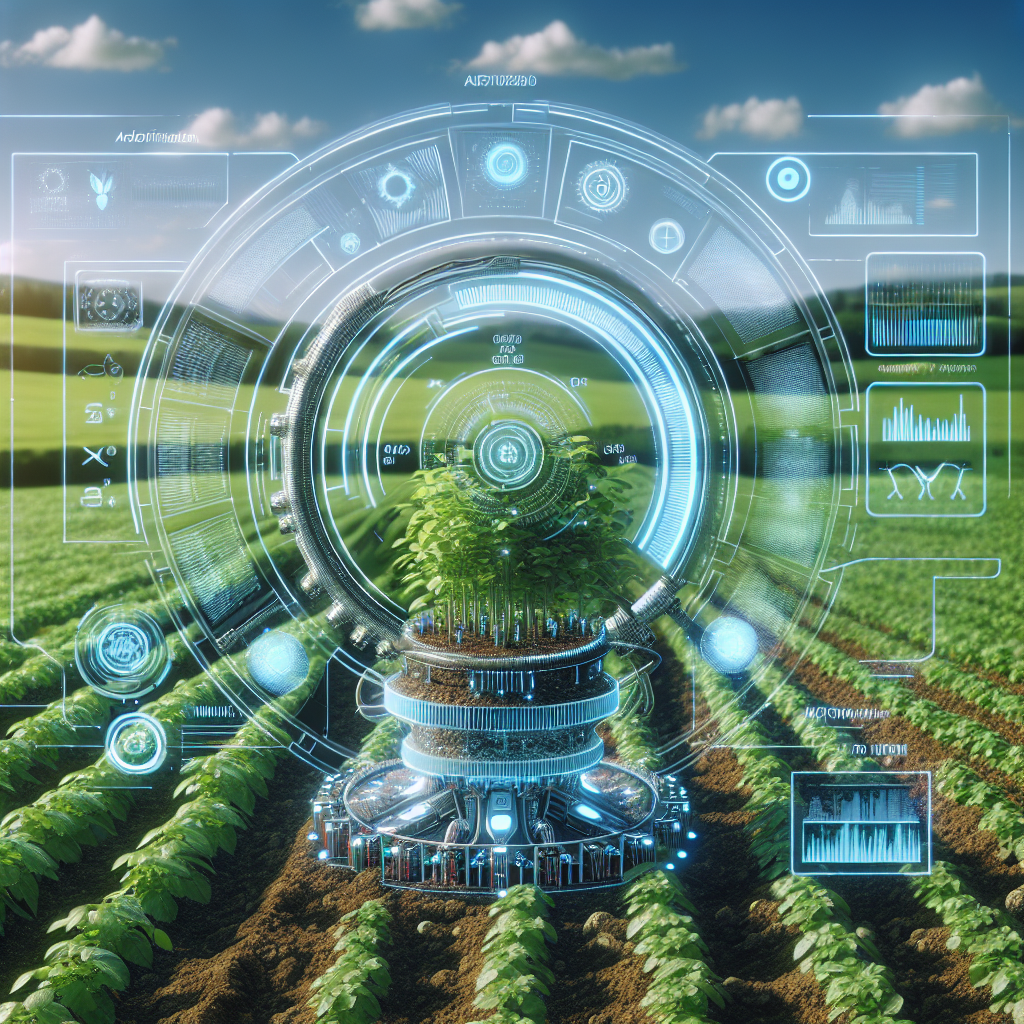AI Technologies for Soil Health Monitoring: Revolutionizing Agriculture
In the world of agriculture, one of the most critical factors for success is the health of the soil. Healthy soil is essential for producing high-quality crops and ensuring sustainable farming practices. However, monitoring soil health can be a challenging and time-consuming task for farmers. This is where AI technologies are stepping in to revolutionize soil health monitoring and help farmers make more informed decisions about their land.
AI technologies, such as machine learning and computer vision, are being used to analyze soil data collected from various sensors and satellites. These technologies can help farmers identify patterns and trends in soil health, such as nutrient levels, moisture content, and pH levels. By providing real-time insights into soil health, AI technologies can help farmers optimize their farming practices, reduce input costs, and increase crop yields.
One of the key benefits of AI technologies for soil health monitoring is their ability to provide personalized recommendations to farmers. By analyzing soil data from specific fields, AI algorithms can recommend the optimal amount and type of fertilizers, pesticides, and irrigation needed to improve soil health and maximize crop productivity. This level of precision and customization can help farmers make more sustainable and efficient decisions about their land.
Another advantage of AI technologies for soil health monitoring is their ability to detect and predict soil degradation before it becomes irreversible. By analyzing historical soil data and monitoring changes over time, AI algorithms can alert farmers to potential issues, such as soil erosion, compaction, and nutrient depletion. This early warning system can help farmers take proactive measures to prevent soil degradation and preserve the long-term health of their land.
In addition to monitoring soil health on a field-by-field basis, AI technologies are also being used to analyze large-scale soil data at the regional and global levels. By combining data from multiple sources, such as satellite imagery, weather data, and soil samples, AI algorithms can create detailed maps of soil health indicators, such as organic matter content, soil texture, and crop productivity. These maps can help policymakers, researchers, and farmers make informed decisions about land use planning, conservation practices, and sustainable agriculture initiatives.
Overall, AI technologies are revolutionizing soil health monitoring by providing farmers with real-time insights, personalized recommendations, and early warning systems to optimize their farming practices and preserve the long-term health of their land. As the demand for food continues to grow and the pressure on natural resources increases, AI technologies will play a crucial role in ensuring the sustainability and productivity of agriculture.
FAQs
Q: How do AI technologies collect soil data?
A: AI technologies collect soil data from various sources, such as soil sensors, satellite imagery, and weather stations. These data sources provide information on soil health indicators, such as nutrient levels, moisture content, and pH levels, which are then analyzed by AI algorithms to provide insights and recommendations to farmers.
Q: Can AI technologies help farmers reduce input costs?
A: Yes, AI technologies can help farmers reduce input costs by providing personalized recommendations for fertilizers, pesticides, and irrigation based on soil data analysis. By optimizing input usage and reducing wastage, farmers can save money and improve the efficiency of their farming practices.
Q: How accurate are AI technologies for soil health monitoring?
A: AI technologies for soil health monitoring are highly accurate, as they can analyze large amounts of data and detect patterns and trends that may not be visible to the human eye. By combining soil data with advanced algorithms, AI technologies can provide farmers with precise recommendations for improving soil health and maximizing crop productivity.
Q: Are AI technologies accessible to small-scale farmers?
A: While AI technologies for soil health monitoring may initially be more accessible to large-scale farmers with the resources to invest in technology, there are efforts to make these technologies more affordable and user-friendly for small-scale farmers. As the technology continues to evolve and become more widespread, it is likely that AI technologies will become more accessible to farmers of all sizes.

